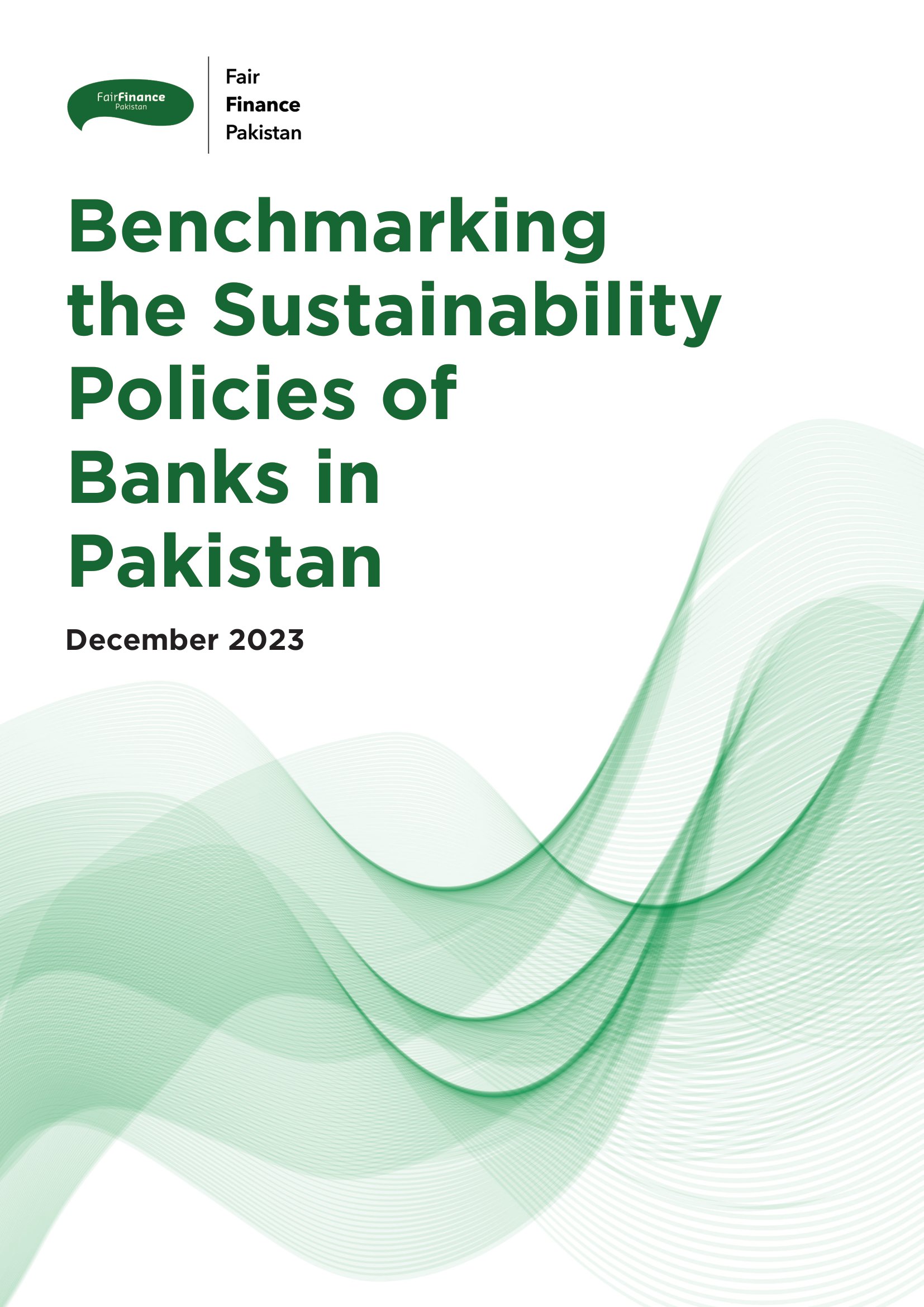
Fair Finance Pakistan (December 2023). Benchmarking the Sustainability Policies of Banks in Pakistan.
On December 4, 2023, Fair Finance Pakistan (FFP) launched its first ever policy assessment of five top commercial banks in Pakistan with the support of Lahore University of Management Sciences (LUMS) and Profundo.
Titled, Benchmarking the Sustainability Policies of Banks in Pakistan, the policy assessment evaluated Habib Bank Limited, Allied Bank, National Bank of Pakistan, Meezan Bank, and Muslim Commercial Bank across 10 thematic areas in the Fair Finance Guide International (FFGI) Methodology, including climate change, corruption, gender equality, human rights, labor rights, nature, arms, tax, transparency and accountability and financial consumer protection.
According to the report, banks generally scored low on the themes assessed. The highest average scores are for “the themes of financial consumer protection, 4.62 out of 10, corruption, 3.18 out of 10, gender equality, 1.48 out of 10, and transparency and accountability, 1.08 out of 10. For all the other themes, the average score for the five banks is inferior to 1 out of 10, which reveals a lack of public policies on most of the sustainability topics assessed.”
The policy assessment also offers key recommendations to create a more responsible and sustainable financial sector in Pakistan:
- Banks should be encouraged to adopt comprehensive environmental policies encompassing nature preservation and climate change mitigation.
- Banks should be encouraged to develop and implement gender-sensitive policies that promote diversity, inclusion, and equal opportunities to ensure gender equality.
- In human rights and labor rights, the banks should be advocated to adopt clear policies on human rights and labor rights, including adherence to international standards.
- For financial consumer protection, banks should have clear policies on the fair treatment of their customers and report concrete measures to ensure that customers are not discriminated against.
- For transparency and accountability, banks should be encouraged to enhance transparency in their investments, including the clear documentation of risk control and accountability practices.
- Banks should develop and disclose tax policies that promote transparency and compliance with tax regulations and ensure public disclosure of relevant financial components.
- Banks should support the implementation of anti-corruption measures, including robust anti-bribery and anti-money laundering policies, terrorist financing, and proliferation financing.
- It is strongly recommended that both regulatory authorities and civil society take proactive measures to monitor banks’ operations closely, ensuring genuine compliance and effective policy implementation, with the inaugural assessment serving as a valuable reference.
- Fostering increased collaboration between banks and stakeholders, including regulators and civil society organizations.
More Information:
To read the full report, click here.